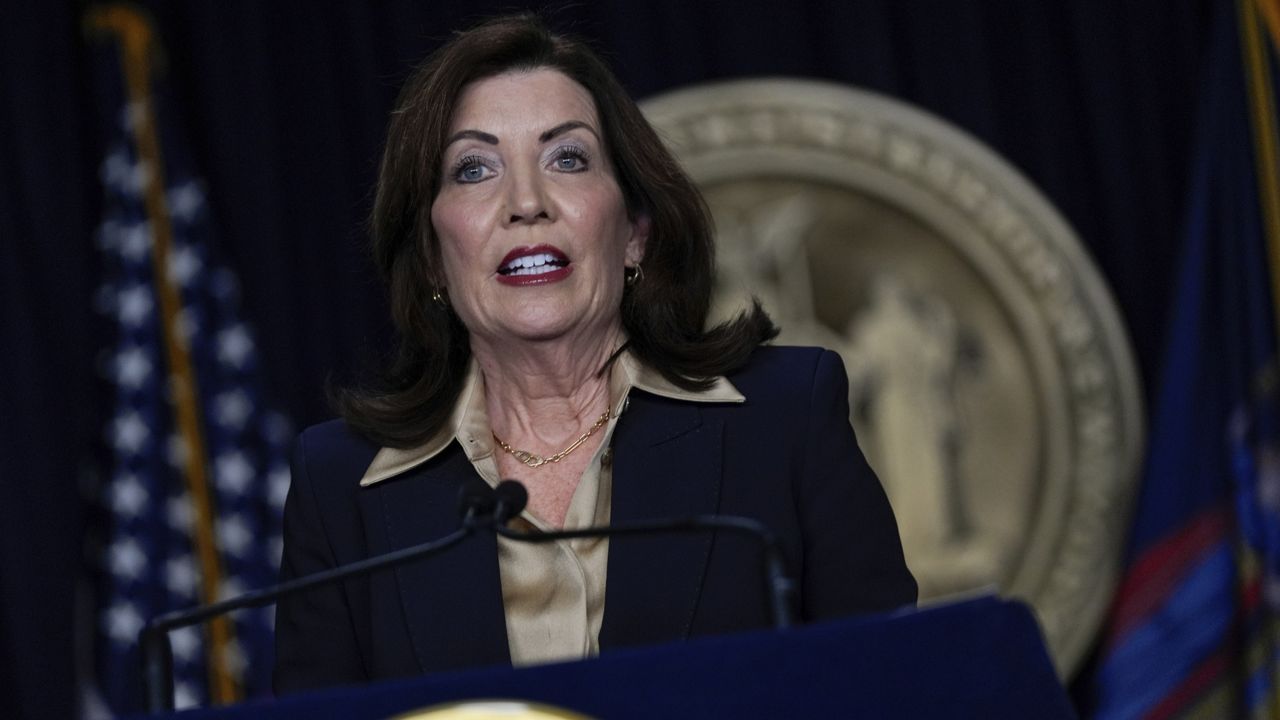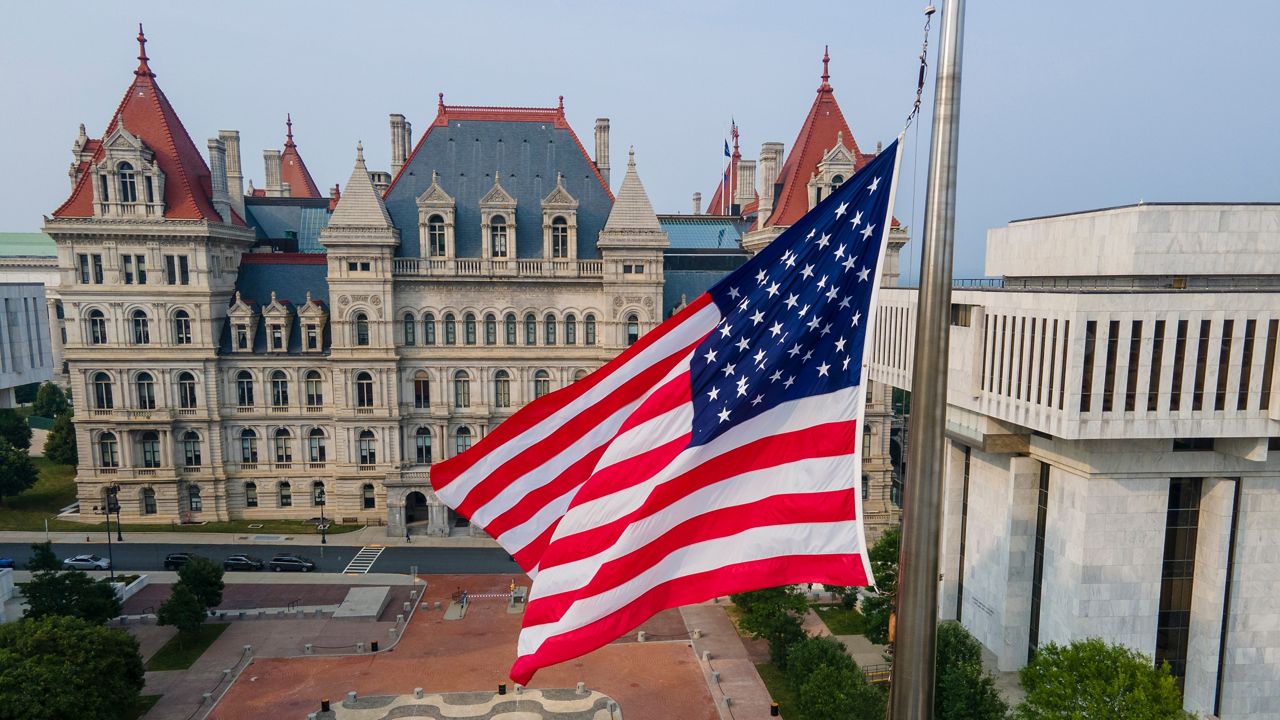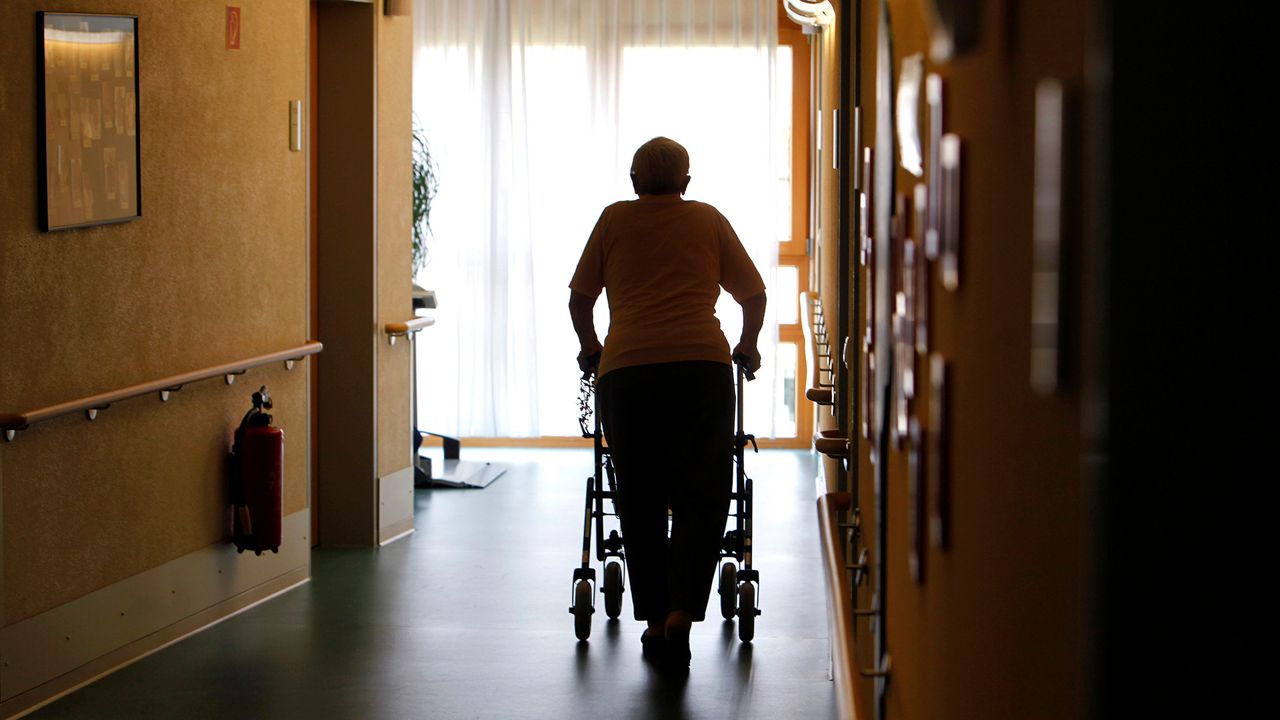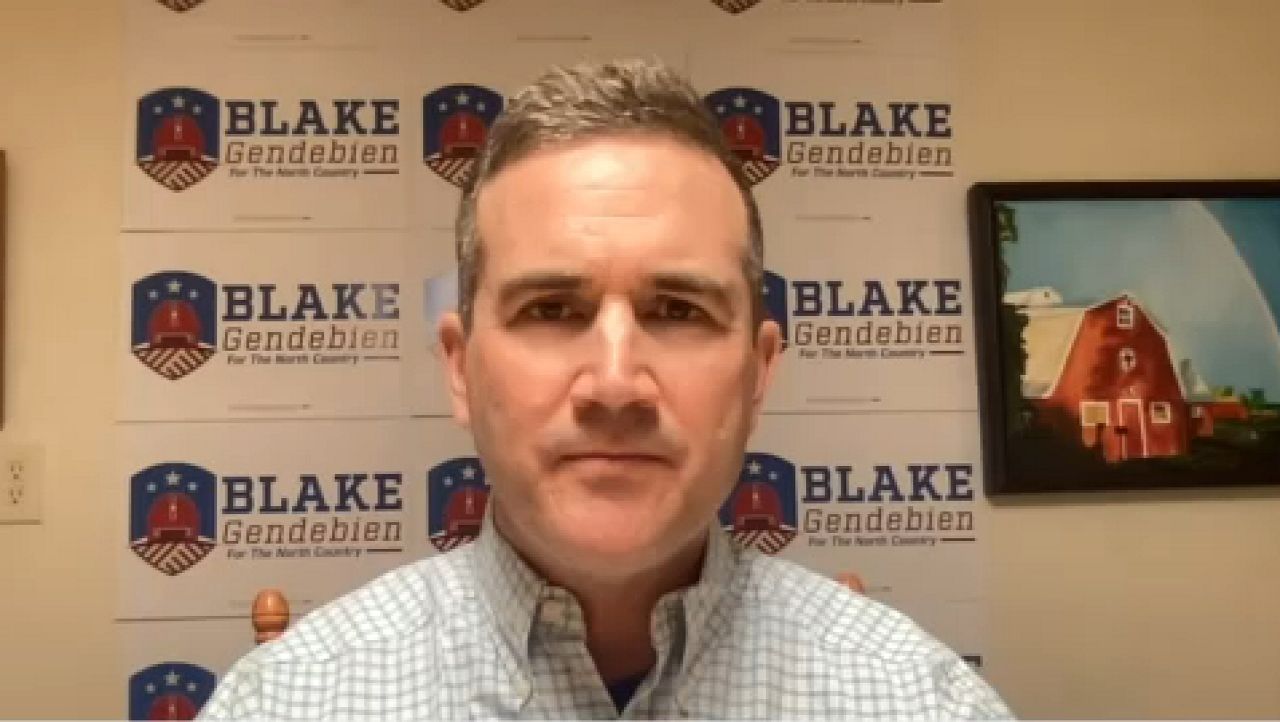Advocates are pushing for labor protections for the fashion and modeling industry as Wednesday marked the final day of New York Fashion Week.
Models, influencers, stylists, makeup artists and other creative artists are pushing for lawmakers to pass the Fashion Workers Act to create regulations for talent and management companies.
"It shouldn't be a luxury to work in the fashion industry," bill sponsor Sen. Brad Hoylman said. "This is hard work that should be compensated in a way that is fair and accountable."
If signed into law, the legislation would mandate companies accept legal responsibility to act in the best interests of their hired talent, provide proper notifications about contract renewals, copies of agreements and would require agencies cap commission fees to 20% of a model's pay.
Many companies require models to put money up front before moving to the city for work.
Models and other creative talent typically have exclusive multi-year contracts or work visas with management companies that are not required to find them work or pay them in a timely fashion.
"It's normal to wait six months to get paid for a job, or even to get booked on a job, and not know whether or how much you're even getting paid," said Sara Ziff, founder and executive director of the Model Alliance.
Current state labor law allows management companies to evade licensing or regulation, allowing them to control booking jobs and a talent's pay rate. The loophole often leaves fashion industry workers in debt and makes young people in the industry prime targets for financial and other abuses.
If the bill becomes law, models, photographers and other talent must be paid no more than 45 days after completing a job.
The bill was introduced this session and nearly passed both houses of the Legislature, but lawmakers ran out of time for a final vote.
The act would also forbid management companies from taking retaliatory action against a model or employee who files a complaint and bars companies from discrimination and harassment.
"People are afraid to stick their neck out and talk about these issues because they're afraid that their agencies are going to cut them off and not get paid," said Tony Kim, a fashion photographer of more than 20 years. "There is actually a strong relationship between the agency and clients and the money that passes through."
Kim noted no other industry allows such treatment of its hired talent, and fashion workers want the same labor protections that benefit employees in other industries.
The state Labor Department and state Attorney General's office would enforce companies to comply with the new rules, imposing penalties or other consequences, if the Fashion Workers Act becomes law.
Ziff, a former model who worked as the face of brands like Calvin Klein, Tommy Hilfiger and Stella McCartney, said her peers share similar stories about the glamorously unregulated industry.
"There's just something really empowering about realizing that we can change this. It doesn't have to be this way. We can. We love our industry. We just want it to be better and for people to be treated fairly.
Kaja Sokola, a former supermodel who worked in the industry for nearly two decades, was first hired at age 14. She says the legislation would help transform the fashion industry and prevent an array of financial and other abuses that often befall young women in the field.
"It's supposed to be a business, but I never felt like a business partner [with agencies]," she said Wednesday. "They don't treat you equally."
Sokola recounted how she blamed herself for the alleged abuse she endured by convicted sex offender Harvey Weinstein. She's publicly accused the former American film producer of sexually assaulting her in his Soho apartment when she was 16, potentially making her his youngest victim. Sokola, originally from Poland, is now 35.
"When you meet a teenager that doesn't know anything about life, with these older, rich men who are predators, they're basically hunting on young girls," she said.
New York has long been a leader within the global fashion industry, and models and other talent are hoping the state will also lead the way to create overdue protections for workers. Fashion workers say it could have a ripple effect for reform across the nation and beyond.
"Families could feel safer about sending their young daughters and sons through this industry," Sokola said. "The industry wouldn't leave a shell of a person at the age of 25 because that's what's happening to a lot of young women. ...The way things are, it's really like sucking a person's soul and leaving an empty shell."










